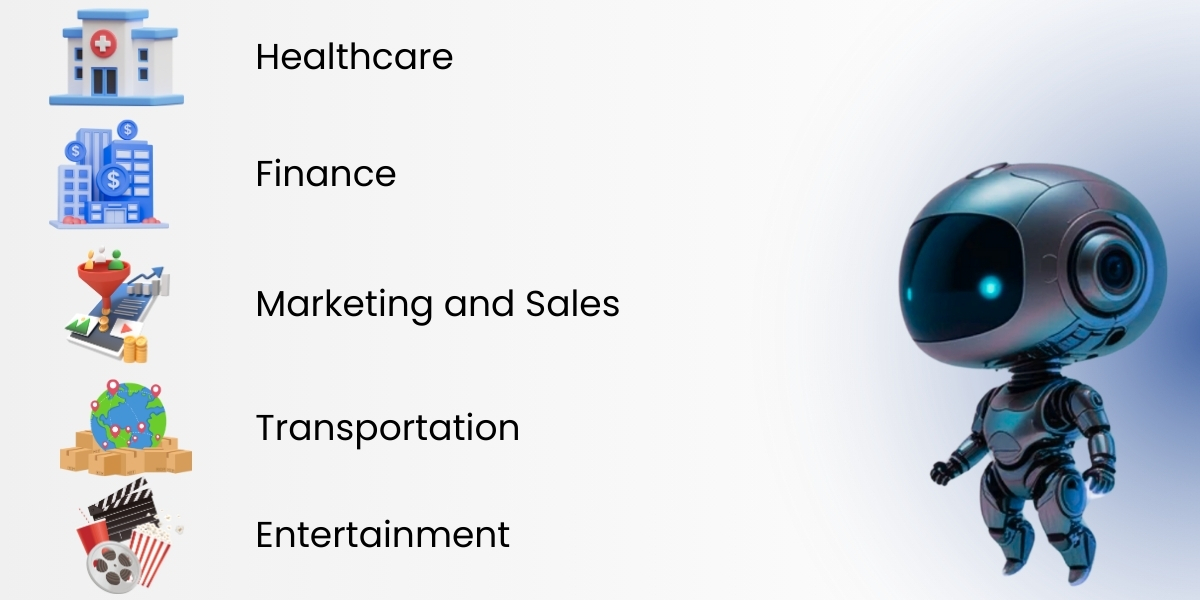In recent years, ML has emerged as a game-changer in the world of technology. As a branch of artificial intelligence (AI), it enables systems to learn from data, improving their performance over time without being explicitly programmed. Whether you’re a business owner looking to leverage data for better decision-making or just curious about this fascinating field, Understanding Machine Learning, understanding the key concepts and applications of ML is essential. Let’s explore what machine learning is, its core concepts, and its various applications across different industries.
What is Machine Learning (ML)?
At its core, ML is about teaching computers to recognize patterns and make decisions based on data. Instead of following a set of predefined rules, machine learning algorithms analyze and learn from the data they process. This ability to learn and adapt allows machines to make predictions, classify information, and even generate content autonomously.
Key Concepts in ML
- Supervised Learning Supervised learning is one of the most common types of ML. In this approach, algorithms learn from labeled training data, which means the input data is paired with the correct output. The algorithm makes predictions based on this training and is then evaluated against a separate set of data to measure its accuracy. Examples include classification tasks, like email spam detection, and regression tasks, such as predicting housing prices.
- Unsupervised Learning Unlike supervised learning, unsupervised learning deals with unlabeled data. The goal here is to find hidden patterns or groupings within the data. This type of learning is often used for clustering, such as segmenting customers based on purchasing behavior, and for dimensionality reduction, which simplifies data while preserving essential information.
- Reinforcement Learning Reinforcement learning is an area of machine learning where an agent learns to make decisions by performing actions in an environment to achieve maximum cumulative reward. This approach is widely used in robotics, gaming, and self-driving cars, where the system learns from feedback based on its actions.
- Neural Networks Inspired by the human brain, neural networks are a set of algorithms designed to recognize patterns. They consist of layers of interconnected nodes (neurons) that process information. Deep learning, a subset of ML, utilizes deep neural networks with many layers to perform complex tasks like image and speech recognition.
Applications of Machine Learning
- Healthcare ML is revolutionizing healthcare by enabling predictive analytics for patient care. Algorithms can analyze medical records to identify risk factors for diseases, improve diagnostic accuracy, and even assist in drug discovery.
- Finance In the finance industry, ML algorithms are used for fraud detection, algorithmic trading, and credit scoring. By analyzing transaction data in real time, these systems can quickly identify suspicious activities and assess the creditworthiness of applicants.
- Marketing and Sales Machine learning helps businesses optimize their marketing strategies. By analyzing customer data, companies can segment their audience, personalize recommendations, and predict future buying behaviors. This targeted approach improves conversion rates and customer satisfaction.
- Transportation In the transportation sector, ML is driving innovations such as route optimization and predictive maintenance for vehicles. Companies like Uber and Lyft use machine learning algorithms to match riders with drivers efficiently.
- Entertainment Streaming platforms like Netflix and Spotify utilize machine learning to analyze user preferences and recommend content tailored to individual tastes. This personalized experience keeps users engaged and encourages subscription renewals.
Benefits of ML
Machine learning (ML) has emerged as a game-changer across various sectors, bringing numerous advantages that enhance efficiency, decision-making, and innovation. Let’s explore some of the key benefits of machine learning and how it can positively impact businesses and everyday life.
1. Improved Decision-Making
One of the standout benefits of ML is its ability to analyze vast amounts of data quickly and accurately. By identifying patterns and trends, machine learning algorithms help businesses make informed decisions based on data rather than intuition. For example, in finance, machine learning can analyze market data to predict stock trends, enabling investors to make better investment choices.
2. Enhanced Efficiency and Automation
ML automates repetitive tasks, freeing up valuable time for employees to focus on more strategic initiatives. For instance, chatbots powered by ML can handle customer inquiries 24/7, providing immediate responses and reducing the workload on customer service teams. This not only boosts efficiency but also enhances the overall customer experience.
3. Personalization
In today’s digital landscape, personalization is key to customer satisfaction. ML allows businesses to tailor their offerings to individual preferences. For example, e-commerce platforms like Amazon use ML algorithms to recommend products based on users’ past purchases and browsing history. This level of personalization increases customer engagement and encourages repeat business.
4. Predictive Analytics
ML excels in predictive analytics, helping organizations forecast future trends and behaviors. For example, retailers can predict customer demand for certain products, enabling them to manage inventory effectively and reduce costs. In healthcare, predictive models can analyze patient data to anticipate potential health issues, allowing for early intervention and better patient outcomes.
5. Improved Security
ML plays a crucial role in enhancing security measures. For instance, financial institutions use machine learning to detect fraudulent transactions in real time. By analyzing transaction patterns, these systems can flag suspicious activities, reducing the risk of fraud. Similarly, cybersecurity firms leverage machine learning to identify and mitigate threats, making systems more resilient against attacks.
6. Continuous Learning and Improvement
ML systems continuously learn and adapt from new data. This means they become more accurate and efficient over time. For businesses, this ability to learn and improve can lead to better products and services. For example, streaming services like Netflix use machine learning to refine their recommendation algorithms based on user feedback, ensuring that users receive more relevant content.
7. Scalability
As businesses grow, so do their data needs. ML systems can scale efficiently, handling increasing volumes of data without a significant increase in costs. This scalability allows organizations to adapt to changing market conditions and customer demands, ensuring they remain competitive in a dynamic environment.
Conclusion
ML is not just a buzzword; it’s a powerful technology that has the potential to transform various industries. By understanding its key concepts—supervised learning, unsupervised learning, reinforcement learning, and neural networks—you can better appreciate how machine learning works and its real-world applications. As this field continues to evolve, staying informed about ML will empower you to harness its benefits, whether in your personal projects or within your organization.
Ready to transform your data into business value?
Let Empirical Edge design and implement machine learning systems that improve efficiency, accuracy, and customer experiences.
Frequently Asked Questions
Machine learning is a field of artificial intelligence where systems learn patterns from data to make predictions or decisions without being explicitly programmed. Empirical Edge builds machine learning models tailored to real business problems using advanced algorithms and data pipelines.
Machine learning can automate decision-making, improve accuracy, detect patterns in large datasets, personalize customer experiences, and optimize operations. Empirical Edge deploys customized ML solutions to help businesses reduce costs and improve performance.
Industries like healthcare, finance, retail, logistics, manufacturing, marketing, and cybersecurity all benefit from machine learning. Empirical Edge delivers industry-specific ML solutions that address unique business needs and challenges.
We comprehensively assess your data, select appropriate models, build and train machine learning systems, integrate with existing infrastructure, and provide ongoing optimization and support to ensure long-term success.
Yes — by enabling personalization, recommendation engines, customer behavior prediction, and targeted communication. Empirical Edge builds ML-powered systems that enhance engagement and conversion rates.












